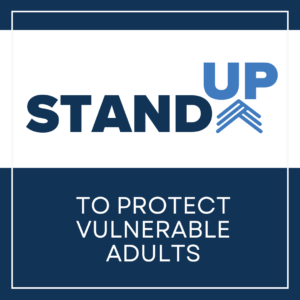We are often asked about the role of a ministry association, district, presbytery, or denomination in child protection and abuse prevention. Typically, networks don’t provide direct programs for children or youth but are often well-positioned to support churches or ministries in creating safe places for kids to learn about Jesus and grow.
Although each of these ministry associations functions differently, with varying levels of authority and resources, all membership-based affiliations function as “networks.” A network is a collection of entities that associate together on the basis of shared interest. In other words, networks represent relationships of trust. A network is well-suited to serve as a catalyst and resource hub for churches, schools, and other ministries.
Networks are great avenues for education, awareness, and sharing resources. For example, many networks work together to support cross-cultural mission work. One local church may be unable to support a missionary team going to the other side of the world. But ten local churches can work together to invest time, money, prayer, and wisdom in several families responding to God’s call to share the good news of Christ with unreached peoples. Or, on the local level, one local Christian school might not have the internal resources to raise curriculum standards for its own school. But, it can belong to a network of Christian schools that collaborate to combine years of experience and wisdom to produce high achievable academic standards, and a method of best practices to bring a school up to the new standards. In other words, we can do more together than we can apart.
I believe that we can follow a similar model when it comes to abuse awareness and prevention. This is a fairly new topic for most ministry leaders, and many of them did not receive much training in this area as they prepared for ministry. But our networks can be a catalyst for leaders to learn together, encourage each other, and raise the standards for Christian ministry when it comes to safeguarding our most valuable asset: our kids.
Here are some ways for networks to support child and youth serving organizations in this important work.
Education and Training
Networks can encourage abuse prevention by raising awareness and providing education. Networks can host training events in-person or virtually to bring their members together to learn about topics related to child safety in ministry. Examples of this might include a training workshop from an expert on the problem of abuse, or providing virtual training or videos on the topic of risk management. Other topics might include: volunteer training, recognizing indicators of abuse, governance and legal topics, responding to allegations, and caring for survivors. Networks could also provide recommended resources, such as books, workbooks, curriculums, or programs that address a specific topic. Ministry networks have a unique position in this role, as they can provide expertise that aligns with the theological commitments of its members and relevant local statutes.
Connections and Solutions
Networks can support child protection by developing relationships with product and service providers to provide support, resources, and solutions by bringing many members together around a common purpose and incentivizing connections by bringing multiple customers or potential customers to a particular solution. For example, a local association could vet and choose one background check provider to recommend for all of their churches. The association assures that the background check provider is trustworthy and aligns with best practices. The association could also negotiate with the provider for lower rates, since it would be the exclusive or recommended background check provider for all churches in the association. The churches would benefit, knowing the provider has been vetted, and they would save money based on the negotiated lower price.
Ministry associations could also help local churches build relationships with nonprofits on the local level seeking to help families and protect the vulnerable. For example, all ministry networks should pursue a relationship with their local Child Advocacy Center (CAC). A CAC is usually a non-profit, pseudo-governmental office where victims are placed in a safe and comfortable environment and where law enforcement, district attorneys, chaplains, DCFS, counselors, and forensic professionals provide services to children and families following an abuse or assault. ECAP encourages all Christian ministries to identify and contact their local CAC to make connections, learn about services, and to be familiar with this important community resource. We are encouraged by the work of Zero Abuse Project to secure funding for a chaplain program for CACs and we hope evangelical Christians will step up to support this vital role.[1]
Leadership and Collaboration
Network leaders play a role in setting an example for everyone else in the network. They can help other leaders know about important trends and connect them with the best and brightest thinkers on a particular subject. Since every church serves children and youth to some extent, ministry networks may consider creating an office of child protection and the hiring of a team member (full time, part time, or contracted) to provide coaching, support, and expertise in this area for all members as a value-add and benefit for membership. This “resident expert” should work to advance the network’s mission by providing training and solutions for member ministries.
Networks are also excellent channels for collaboration and communication from member ministries to hear their challenges, learn about obstacles, and to work together to identify solutions that benefit the entire network. Christians have been doing this for many years by building seminaries and other institutions. We learn from each other and help one other discover the best ideas and strategies in order to effectively minister to those under our care.
Christians have been working “better together” for centuries for the sake of missions, evangelism, theological education, mercy ministry, life and policies issues, and more. Why should we not work together to rally around the clear and present problem of sexual abuse? This is not limited to abuse in your ministry context, but also ministering to survivors of abuse who are in virtually every ministry. How will you safeguard them and respond when you hear of the trauma that they have experienced?
We want our Christian ministries to be safe havens for the hurting and to provide hope and healing through the gospel of Jesus Christ. We as Christians believe every person is created in God’s image and is worthy of dignity and respect. We believe that protecting persons from abuse is an important matter of Biblical stewardship as well as a Great Commission issue. ECAP supports Christian ministries by helping them create and sustain a child protection program that allows kids to hear the gospel and grow in discipleship
ECAP would be honored to meet with you and your network to explore ways in which you can serve and support your member ministries to help them safeguard the vulnerable. Together, we can impact our culture by living holy lives, defending the vulnerable, doing justice, loving kindness, and walking humbly with our God (Micah 6:8).
Set up an appointment with ECAP today to learn how we can support your network.
[1] See https://ojjdp.ojp.gov/programs/childrens-advocacy-centers to find your local CAC





